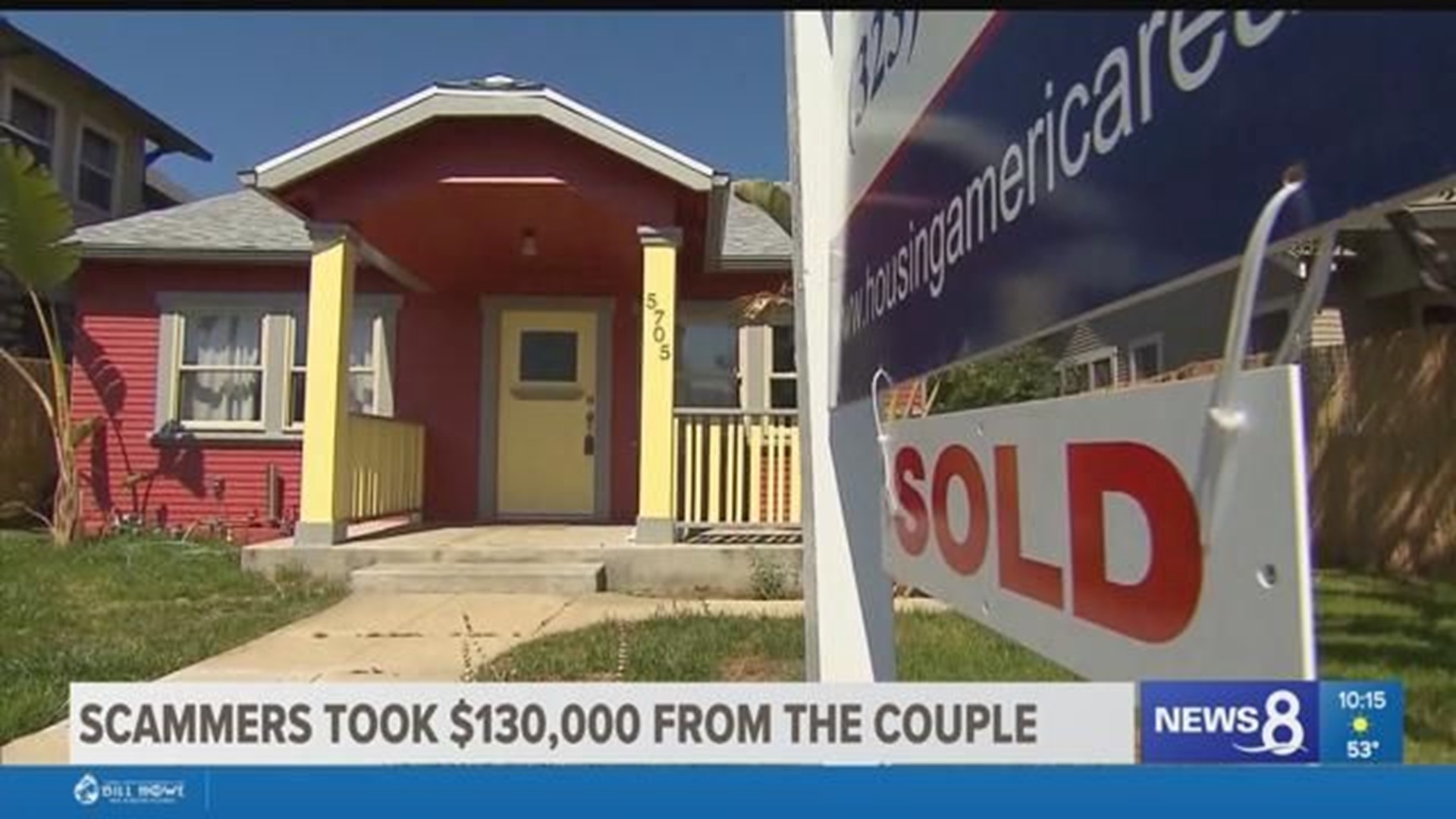SAN DIEGO (NEWS 8) – A local family lost their entire life savings to scammers while they were in the process of buying a home after they unknowingly wired their money to a fraudulent escrow account.
Andrew Batson and Erika Urry were close to finally living in their dream home - only needing to send their down payment to the escrow company. When Andrew received an email from the escrow company asking to wire the down payment, he complied.
“I did so that day thinking I was under pressure and we were supposed to close in that week,” said Andrew.
However, the next week, Andrew received a call from their real estate agent asking for the money because it was missing and was needed so they could close on the property. It was at that moment when Andrew and Erika realized they had been scammed.
“I had to call Erika to let her know all the money was gone,” said Andrew.
Erika said she was in disbelief. “This is not real. It’s not gone. We can just go to the bank, say hey, we want that money back,” she said.
According to the couple, someone used the escrow company’s exact email to ask for the wire. It even included details only someone working on the sale of the home could know. "It had all the names of the people involved in the transaction, the escrow officer, the real estate agent,” said Andrew.
Andrew called the Oceanside police and even the FBI, but it was too late. The couple’s $130,000 savings for the down payment was gone.
“It is hard to comprehend how someone can even do this with a key stroke,” said Andrew.
In an effort to help others avoid the same scam, the couple wanted to share what they learned from the experience. One example is to not feel pressured to only send money through a wire transfer. Andrew adds, "That is not a correct assertion by any escrow company. They can take any check of any size,” said Andrew.
Despite the financial blow, the couple was able to come up with the down payment, and they are not allowing the scam to ruin their dreams.
What should someone do if they believe they have fallen victim to a business email compromise (BEC) or an email account compromise (EAC) scam?
According to the FBI, if funds are transferred to a fraudulent account, it is important to act quickly:
- Contact your financial institution immediately upon discovering the fraudulent transfer and request that your financial institution contact the corresponding financial institution where the fraudulent transfer was sent.
- File a complaint, regardless of dollar loss, with www.ic3.gov or, specifically for BEC/EAC victims, bec.ic3.gov.
Andrew and Erika have set up a GoFundMe page for anyone wishing to help them out.

